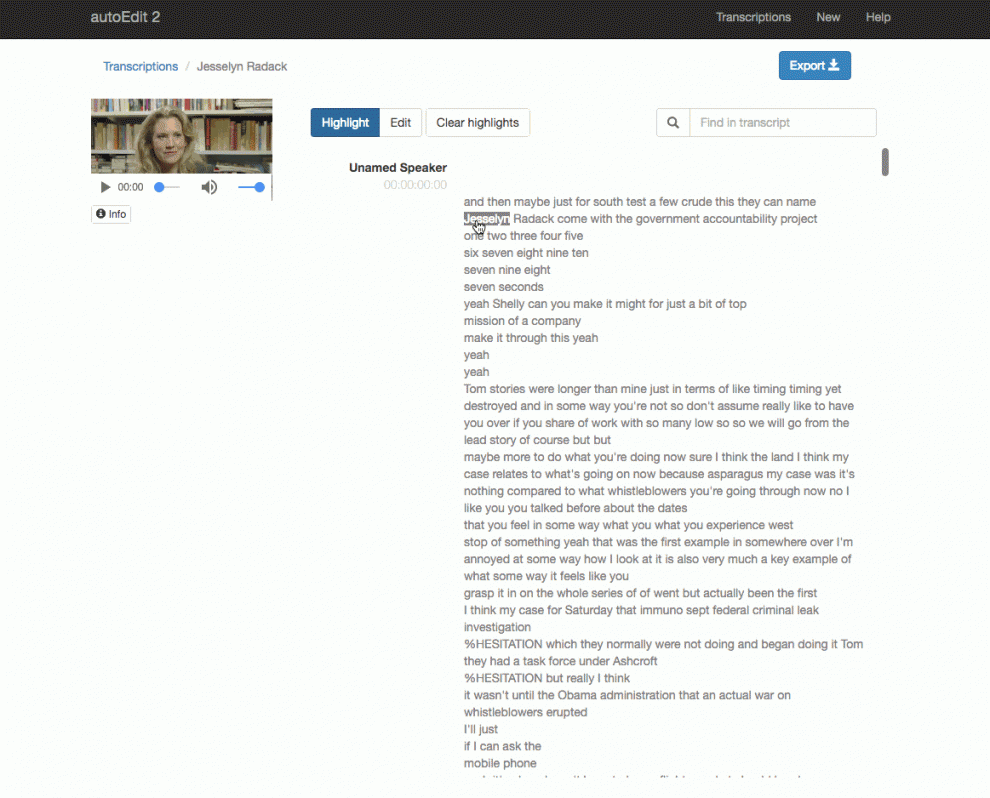Transcribing and then trying to edit audio or video makes me want to tear my hair out. While there are free tools out there to simplify the process — oTranscribe, Draft — finding the right quotes from a long speech or cleaning up a Q&A still feels interminable.
autoEdit, an open source editor being developed by Knight-Mozilla fellow Pietro Passarelli during his time at Vox Media, shaves some time off a lot of post-production tasks, such as captioning videos.At the moment, autoEdit work with either IBM Watson’s speech-to-text API (supports several languages) or Gentle (free and works offline; English only) to generate a transcript. (For what it’s worth, I tried this a few times and found Gentle to be perfectly serviceable.) Once the transcript is generated, autoEdit offers a number of intuitive editing features, such as exporting select quotes with the corresponding video clip into Adobe Premiere.

The Vox team has already been using it, for instance, to pick out highlights from Michelle Obama’s speech earlier this month in Phoenix on the stump for Hillary Clinton and caption a short Facebook video on her speech (a case where video of the speech wasn’t available on television, so wasn’t available on Snapstream).
Based on user feedback, Passarelli is still tinkering with things like word-by-word versus line or sentence-level editing of transcripts, and the option to select quotes from multiple different transcriptions and bring them together into a story script at the paper edit level.
You can try it out here.
Leave a comment